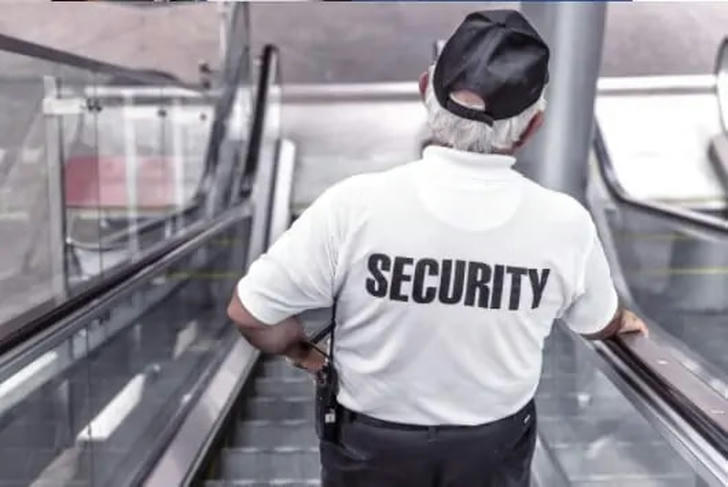🔍 Low-Threshold Jobs for Middle-Aged and Elderly: A Guide to Security Work
Are you looking for a stable, easy job? You can join the U.S. security industry even if you have no experience. Learn about the job's great benefits, work hours, and how to apply.

Who Is It Suitable For?
Security work is well-suited for those who:
Seek meaningful activity post-retirement, aiming to supplement income 💰 (e.g., boosting pensions) without excessive exertion;
Require flexible hours to balance family responsibilities 👨👩👧👦 (e.g., caring for grandchildren or participating in family events);
Have moderate physical capacity for light activities 🚶 (e.g., short walks, alternating sitting and standing) but wish to avoid heavy labor;
Possess strong observational skills 👀, patience, or rich life experience (e.g., household management, community involvement)—traits highly valued in security roles.
Its core advantage is its extremely low entry threshold 🚪: no professional experience, physical prowess, or military/police background is required (85% of elderly security workers come from non-security fields). Those with no prior experience can start working after brief training, making it a low-risk, accessible option for middle-aged and elderly individuals.
Common Security Roles and Responsibilities: Minimal Physical Strain 🛡️
Security positions vary by setting, with responsibilities centered on observation, coordination, and basic management, requiring little physical effort:
Retail Security Guards 🛒: Based in malls or supermarkets, they patrol to prevent theft, assist with minor customer disputes, and direct foot traffic. Mobility aids are often available to reduce walking.
Corporate Security Guards 🏢: Stationed in office buildings or tech parks, they verify credentials of visitors, manage parking order, monitor fire safety equipment, and may work in monitoring rooms part-time.
Luxury Property Guards 🏡: Assigned to high-end residential areas or hotels, they register visitors and maintain public order in clean, fixed-duty environments.
Community/Public Area Security Guards 🌳: Working in neighborhoods, parks, or libraries, they patrol for safety hazards (e.g., unlocked doors) and respond to basic resident requests at a steady pace.
Modern Security Work: Reduced Physical Exertion, Enhanced Comfort 😌
Contemporary security work has moved beyond reliance on physical labor:
Mobility aids 🛴: Golf carts and electric scooters are widely available, reducing walking during patrols;
Comfortable workspaces ❄️🌞: Monitoring stations are typically temperature-controlled with seating, allowing for seated monitoring of cameras and access control systems;
Digital support 📱: Real-time surveillance via screens and walkie-talkie communication minimize manual tasks, simplifying operations;
Flexible pacing ⚖️: Roles allow alternating sitting and standing—staff can walk when seated work grows tiring, or rest in monitoring rooms after patrols—with minimal physical demands.
Entry Requirements: Nearly No Barriers 📋
To enter the field, individuals need only meet these criteria:
Age: 18+ (no upper limit, fully accessible to middle-aged and elderly) 🎂;
Background: No serious criminal record (passes basic background checks) 🧐;
Eligibility: Legal work status (e.g., U.S. citizenship, green card) 🛂;
Skills: Basic English communication ability 🗣️ and proficiency with simple electronics (e.g., phones, walkie-talkies—easily learned through training) 📱.
No experience, physical strength, or educational credentials are required ✅—a highly accessible pathway for middle-aged and elderly candidates.
3 Straightforward Steps to Apply: From Preparation to Employment 🚀
Step 1: Prepare a "Life Experience Resume" 📄
Prior work experience is not required. Highlight:
Any past employment (even decades prior);
Community or volunteer activities (e.g., neighborhood committees, church roles);
Life skills (e.g., "40 years of household management, strong attention to detail" or "Cared for 3 grandchildren, skilled in communication").
Step 2: Select Appropria
te Application Channels 🌐🏫
Online: Use platforms like Indeed, LinkedIn, or AARP’s job portal (tailored to older adults with priority referrals);
Offline: Attend local AARP job fairs (typically Thursdays), visit community employment centers, or contact local offices of security firms (e.g., Allied Universal, Securitas).
Step 3: Key Points to Emphasize in Interviews 🗣️
Employers prioritize reliability over age. Highlight:
Punctuality and dependability;
Proximity to the workplace for quick response to emergencies;
A track record of responsibility (e.g., "Never late in my career, value accountability").
Summary: Security Work as a Viable Second Career for Middle-Aged and Elderly 👍
For middle-aged and elderly individuals, security work offers stable supplementary income and opportunities for social engagement—with low barriers to entry, minimal physical strain, and flexible hours. It leverages life experience effectively, making it an excellent choice for those seeking meaningful post-retirement work that balances income and well-being 🎉.
